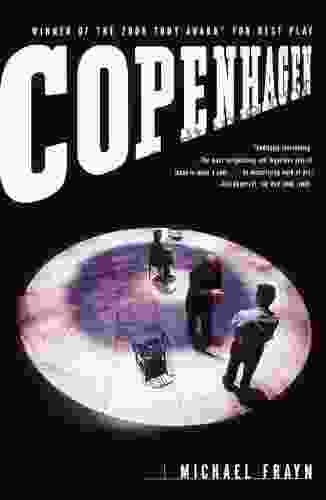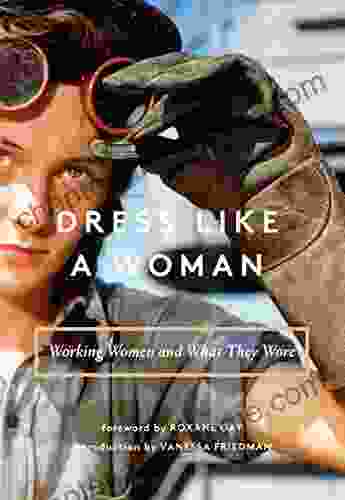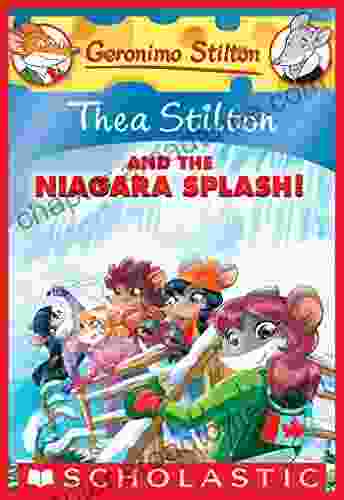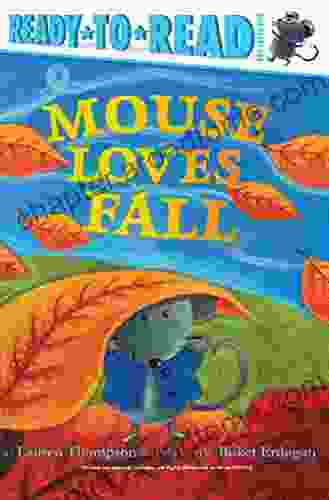Copenhagen by Michael Frayn: A Play About Science, Ethics, and the Responsibilities of Scientists

Copenhagen is a play by Michael Frayn that explores the meeting of Niels Bohr and Werner Heisenberg in Copenhagen in 1941. The play is a fictionalized account of the meeting, and it explores the relationship between science and ethics, and the responsibilities of scientists in a world at war.
Plot
The play takes place in Copenhagen in 1941. Niels Bohr, a Danish physicist, has invited Werner Heisenberg, a German physicist, to visit him. The two men are old friends and colleagues, but they have been estranged since the outbreak of World War II.
4.5 out of 5
| Language | : | English |
| File size | : | 3324 KB |
| Text-to-Speech | : | Enabled |
| Screen Reader | : | Supported |
| Enhanced typesetting | : | Enabled |
| Word Wise | : | Enabled |
| Print length | : | 145 pages |
Bohr and Heisenberg spend the evening talking about science, ethics, and the war. Bohr argues that scientists have a responsibility to use their knowledge for good, while Heisenberg argues that scientists should remain neutral and focus on their research.
The play ends with Bohr and Heisenberg agreeing to disagree. However, the play also suggests that the two men have a deep respect for each other, and that they are both committed to the pursuit of knowledge.
Characters
- Niels Bohr: A Danish physicist who is a pioneer in the field of quantum mechanics. Bohr is a Nobel laureate, and he is known for his work on the atomic model and the Copenhagen interpretation of quantum mechanics.
- Werner Heisenberg: A German physicist who is also a pioneer in the field of quantum mechanics. Heisenberg is a Nobel laureate, and he is known for his work on the uncertainty principle and the matrix mechanics formulation of quantum mechanics.
- Margrethe Bohr: Niels Bohr's wife. Margrethe is a strong supporter of her husband's work, and she is also a talented physicist in her own right.
- Erik Bohr: Niels Bohr's son. Erik is a physicist, and he is also a close friend of Werner Heisenberg.
Themes
Copenhagen explores a number of themes, including:
- The relationship between science and ethics: Bohr believes that scientists have a responsibility to use their knowledge for good, while Heisenberg believes that scientists should remain neutral and focus on their research.
- The responsibilities of scientists in a world at war: The play explores the ethical dilemmas that scientists face in a world at war. Bohr and Heisenberg both struggle with the question of whether they should continue their research, even if it could be used to develop weapons of mass destruction.
- The nature of reality: The play explores the nature of reality, and the role that science plays in our understanding of the world. Bohr and Heisenberg discuss the Copenhagen interpretation of quantum mechanics, which suggests that the world is fundamentally uncertain.
Critical Reception
Copenhagen has received critical acclaim since its premiere in 1998. The play has been praised for its intellectual rigor, its emotional depth, and its insightful exploration of the human condition.
In a review of the play, The New York Times wrote: "Copenhagen is a play that will stay with you long after you see it. It is a play that will make you think, and it is a play that will challenge your assumptions about the world."]
Awards
Copenhagen has won numerous awards, including:
- The Tony Award for Best Play (1999)
- The Drama Desk Award for Outstanding Play (1999)
- The Laurence Olivier Award for Best New Play (2000)
Copenhagen is a powerful and thought-provoking play that explores the complex relationship between science, ethics, and the human condition. The play is a must-read for anyone who is interested in the history of science, the philosophy of science, or the human condition.
4.5 out of 5
| Language | : | English |
| File size | : | 3324 KB |
| Text-to-Speech | : | Enabled |
| Screen Reader | : | Supported |
| Enhanced typesetting | : | Enabled |
| Word Wise | : | Enabled |
| Print length | : | 145 pages |
Do you want to contribute by writing guest posts on this blog?
Please contact us and send us a resume of previous articles that you have written.
 Book
Book Novel
Novel Page
Page Chapter
Chapter Text
Text Story
Story Genre
Genre Reader
Reader Library
Library Paperback
Paperback E-book
E-book Magazine
Magazine Newspaper
Newspaper Paragraph
Paragraph Sentence
Sentence Bookmark
Bookmark Shelf
Shelf Glossary
Glossary Bibliography
Bibliography Foreword
Foreword Preface
Preface Synopsis
Synopsis Annotation
Annotation Footnote
Footnote Manuscript
Manuscript Scroll
Scroll Codex
Codex Tome
Tome Bestseller
Bestseller Classics
Classics Library card
Library card Narrative
Narrative Biography
Biography Autobiography
Autobiography Memoir
Memoir Reference
Reference Encyclopedia
Encyclopedia Mick Olinik
Mick Olinik Steve Carter
Steve Carter S G Fieldstone
S G Fieldstone Philipos C Loizou
Philipos C Loizou Nick Redfern
Nick Redfern Michael Gunner
Michael Gunner Michael Navarro
Michael Navarro Michael Fitzpatrick
Michael Fitzpatrick Mladen Dolar
Mladen Dolar Noor Azlina Yunus
Noor Azlina Yunus Stefan E Schulenberg
Stefan E Schulenberg Roberto Gemori
Roberto Gemori Michael Walsh
Michael Walsh Suzanne Anker
Suzanne Anker Richard D Rieke
Richard D Rieke Michael T Cooper
Michael T Cooper Nicole S Berry
Nicole S Berry Laura Scott
Laura Scott Mireille Schwartz
Mireille Schwartz Michelle Gringeri Brown
Michelle Gringeri Brown
Light bulbAdvertise smarter! Our strategic ad space ensures maximum exposure. Reserve your spot today!
 Dwight BellFollow ·10.7k
Dwight BellFollow ·10.7k Bill GrantFollow ·3.9k
Bill GrantFollow ·3.9k Elliott CarterFollow ·13.6k
Elliott CarterFollow ·13.6k Felix HayesFollow ·15.1k
Felix HayesFollow ·15.1k Raymond ChandlerFollow ·8.9k
Raymond ChandlerFollow ·8.9k Forrest BlairFollow ·2.2k
Forrest BlairFollow ·2.2k Brayden ReedFollow ·2.6k
Brayden ReedFollow ·2.6k Robert FrostFollow ·11.4k
Robert FrostFollow ·11.4k
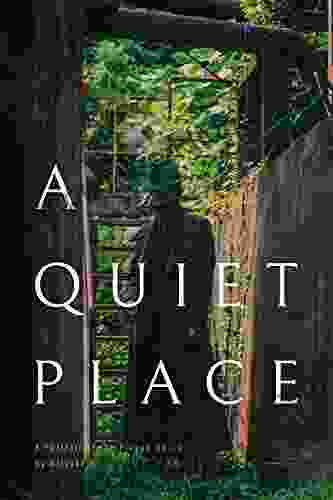
 Samuel Beckett
Samuel BeckettPortrait of the Plague Doctor: A Chilling Tale of Fear...
Prologue: A...

 Elliott Carter
Elliott CarterTrends in Modeling and Simulation Studies in...
Unveiling the Convergence of...
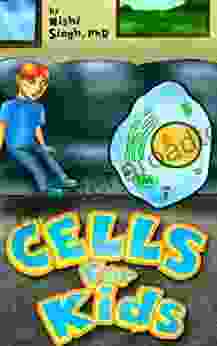
 Natsume Sōseki
Natsume SōsekiCells For Kids: Science For Children
Unlock the Microscopic...
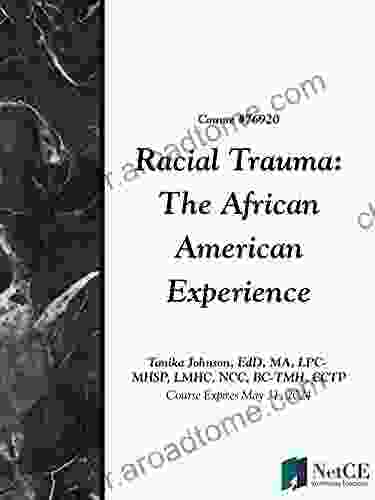
 Anthony Wells
Anthony WellsUnlock the Power of Understanding: Embrace the African...
Embark on a Journey of Truth,...
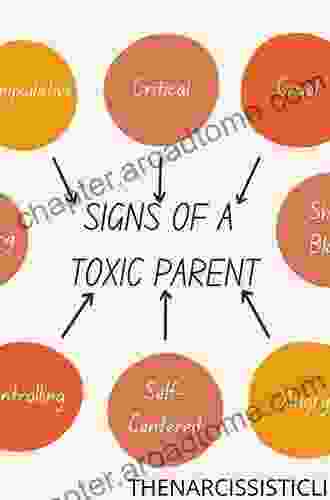
 Forrest Reed
Forrest ReedBreaking Free: Healing from Toxic Relationships Between...
Are you struggling...
4.5 out of 5
| Language | : | English |
| File size | : | 3324 KB |
| Text-to-Speech | : | Enabled |
| Screen Reader | : | Supported |
| Enhanced typesetting | : | Enabled |
| Word Wise | : | Enabled |
| Print length | : | 145 pages |


